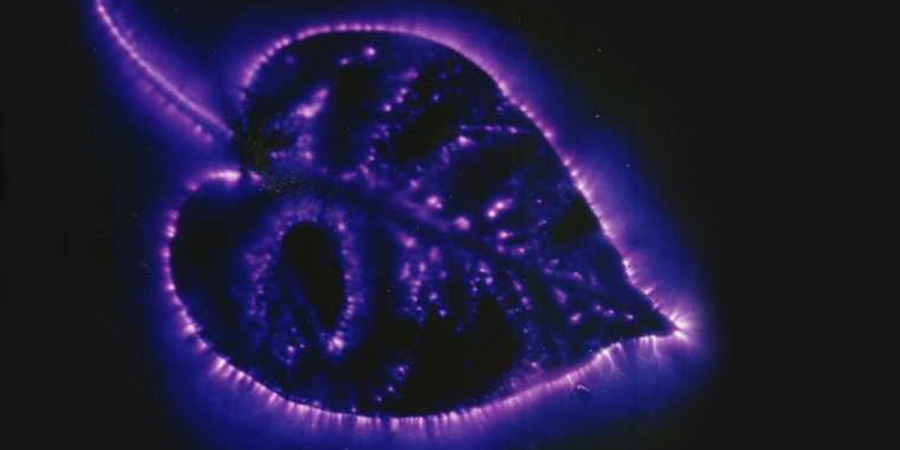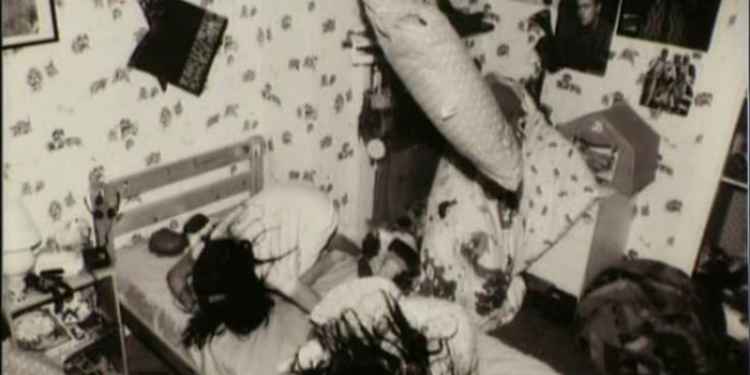
Photo: MART PRODUCTION

Photo: MART PRODUCTION
This page is more than one year old.
Possession is described as a condition in which an individual, seemingly against their will, is controlled by an external force or entity, often of a malevolent nature. This control can result in changes in behaviour, voice, physical strength, and even knowledge of languages or information previously unknown to the possessed person. Once in control, the entity is able to influence or take control of a person's thoughts, emotions, and actions.
It's often said that individuals become more vulnerable to possession during emotional or difficult times. Entities might exploit these vulnerabilities by attaching themselves to a person and beginning to draw energy from them, gradually gaining enough strength to influence or completely take over their host's body and mind.
Although the phenomenon of possession is well documented, often being depicted in horror films and literature, there is no scientific consensus on how an entity might possess a human. Paranormal researchers have come up with some theories. One such theory is that a supernatural entity might possess the ability to manipulate or penetrate a person's energy field or aura.
Others think that an entity might be able to possess a human if their vibrational frequencies align with the frequency of their victim. This idea is based on the belief that everything in the universe, including humans, emits a certain energy or vibrational frequency, which is thought to reflect our emotional, physical, and spiritual states. However, it's important to clarify that the notion of vibrational frequencies is a metaphysical concept and doesn't have a basis in conventional science as understood by physics or biology, where the concept of vibration relates more to the physical movement of atoms and molecules.
Another theory suggests that possession could involve a process of soul displacement or exchange, where the entity's consciousness displaces or swaps places with the human's soul.
The concept of possession is closely linked with "attachments" and "walk-ins," both of which describe different forms of spiritual influence or interaction with the living. While possession is perhaps the most dramatic of these ideas, attachment is a more subtle form of spiritual influence. It is said to occur when a spirit or entity attaches itself to a person without taking full control over their body or mind. People with attachments might experience unexplained mood swings, energy drains, or changes in personality, but they retain their consciousness and awareness. Walk-ins are where a different soul or consciousness takes over the body, but with the host's consent. Unlike possession, this is usually not considered malevolent or harmful.
There are several fairly agreed-upon signs that might suggest a possible possession. These signs typically include sudden, unexplainable changes in physical appearance or health that do not have a medical explanation. This might include sudden weight loss or gain, the appearance of marks on the body, or a dramatic change in complexion. Dramatic and sudden changes in personality or behaviour that are out of character for the individual, especially if these changes are negative or destructive, can also be seen as potential indicators.
Reports of individuals displaying strength far beyond their normal capacity or demonstrating abilities they did not previously possess, such as speaking in unknown languages, can also be indicative of possession. For some victims of possession, a strong, negative reaction to sacred or religious objects, texts, or symbols could be a sign. This might include physical discomfort, anger, or fear when in proximity to such items.
Significant alterations in the voice or manner of speaking, including speaking in a tone or accent different from the individual's normal speech patterns or speaking in languages the person does not know, are often reported in cases of possession. As is displaying knowledge that the individual has no logical way of knowing, such as personal information about others that they have not been told about or knowledge of events that they did not witness.
Some also believe that an increase in paranormal activity surrounding the individual, such as objects moving on their own, unexplained noises, or shadows and apparitions being seen, can be associated with possession. Other signs include individuals appearing to lose control over their actions or speech, severe nightmares, sleep paralysis, and unexplained injuries upon waking.
Many people involved in reported possessions exhibit a severe and irrational resistance to offers of help, especially in the form of religious or spiritual intervention. This might also include violent reactions to attempts at performing rites or prayers meant to help.
Although these signs are generally accepted by proponents of possession, diagnosing the condition can involve risks. One of the most significant concerns is that mental health issues, such as schizophrenia, bipolar disorder, or severe depression, could be mistaken for possession. This misinterpretation can delay proper psychiatric treatment, leaving the individual without the necessary care and support.
For those experiencing mental health issues, being labelled as possessed can make their symptoms worse. The fear, stress, and anxiety associated with such processes can lead to an increased sense of despair, isolation, and even psychosis. Practices like exorcisms sometimes involve restraining the individual, exposure to stress-inducing environments, or even physical violence under the guise of expelling the entity. Such actions not only pose immediate physical risks but can also lead to long-term psychological trauma.
If a paranormal investigator suspects that someone may be experiencing possession, it's important that they approach the situation with sensitivity and rationality. Before considering a supernatural cause, it's important to rule out medical or psychological causes for the behaviour and experiences. Encourage the individual to undergo thorough medical and psychological assessments by professionals. Many symptoms that are commonly associated with possession, such as changes in personality, mood swings, or unusual physical abilities, can often be attributed to identifiable health issues. You can help by offering emotional support to the individual and their family and by ensuring any guidance and treatment plans provided by medical and psychological professionals are followed.
Historically, many cases of supposed possession could be attributed to mental health issues, such as schizophrenia or dissociative identity disorder, that were not understood or diagnosable at the time. The symptoms of these conditions, such as hearing voices or exhibiting alternate personalities, bear a striking resemblance to accounts of possession.
Possession, by its nature, is difficult to study under controlled conditions, making it challenging to gather empirical evidence that satisfies scientific standards. This lack of verifiable evidence creates a logical impasse for accepting possession as a real phenomenon within the scientific community.
From a more skeptical viewpoint, the logic of possession is fraught with challenges. It raises questions about the nature of consciousness, the definition of self, and the existence of the supernatural. How can an external entity override an individual's free will and consciousness? And if such entities exist, what are their origins, and how do they interact with the physical world? These questions highlight the logical impasses and the difficulties in scientifically validating the existence of possession. The power of belief and suggestion also plays a role in experiences of possession. Individuals deeply embedded in cultures or religions that recognise possession may be more likely to interpret their experiences through this lens.
These impasses do not necessarily disprove the possibility of possession but highlight the complexities and challenges in understanding and validating such experiences. Whether viewed through the lens of psychology, religion, or the paranormal, possession remains a culturally significant subject of debate.
More Essential Parapsychology
See All
ArrayOctober 11, 2024
The Reality Behind Kirlian Photography’s Glowing Auras

ArrayOctober 07, 2024
Could Retroactive Psychokinesis Allow Us To Influence The Past?

ArrayOctober 05, 2024
What Spontaneous Cases Are & Why Parapsychologists Research Them
Further Reading
Dive into the world of the paranormal and unexplained with books by Higgypop creator and writer Steve Higgins.

Encounters
A historical overview of UFO sightings and encounters, from 1947 to modern government reports.
Buy Now
Investigating The Unexplained
Practical advice on conducting paranormal investigations and uncovering the unexplained.
Buy NowMore Like This

Haunted BritainDecember 25, 2024
2024's Most Popular Paranormal Hotspots In The UK

GamesNovember 28, 2024
Can You Match These Famous Ghosts To Their Haunting Grounds?

HalloweenOctober 30, 2024
Richard Felix Shares A Collection Of Modern Ghost Stories For Halloween

ParanormalOctober 20, 2024
My First Ever Ghost Hunt: 20 Years Ago This Halloween Night
 See More on Audible
See More on Audible

Comments
Want To Join The Conversation?
Sign in or create an account to leave a comment.
Sign In
Create Account
Account Settings
Be the first to comment.